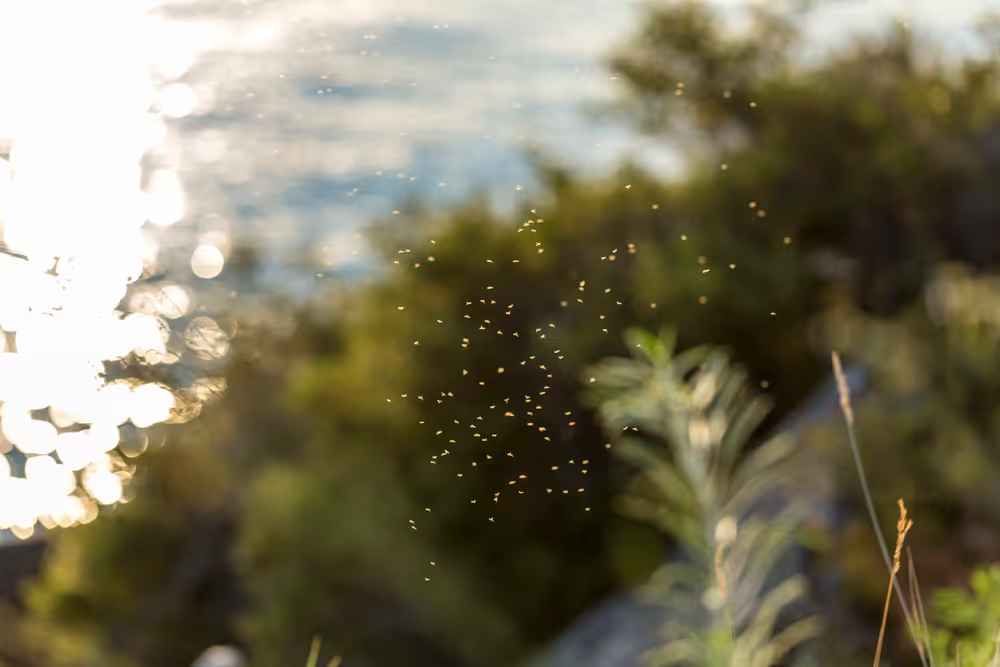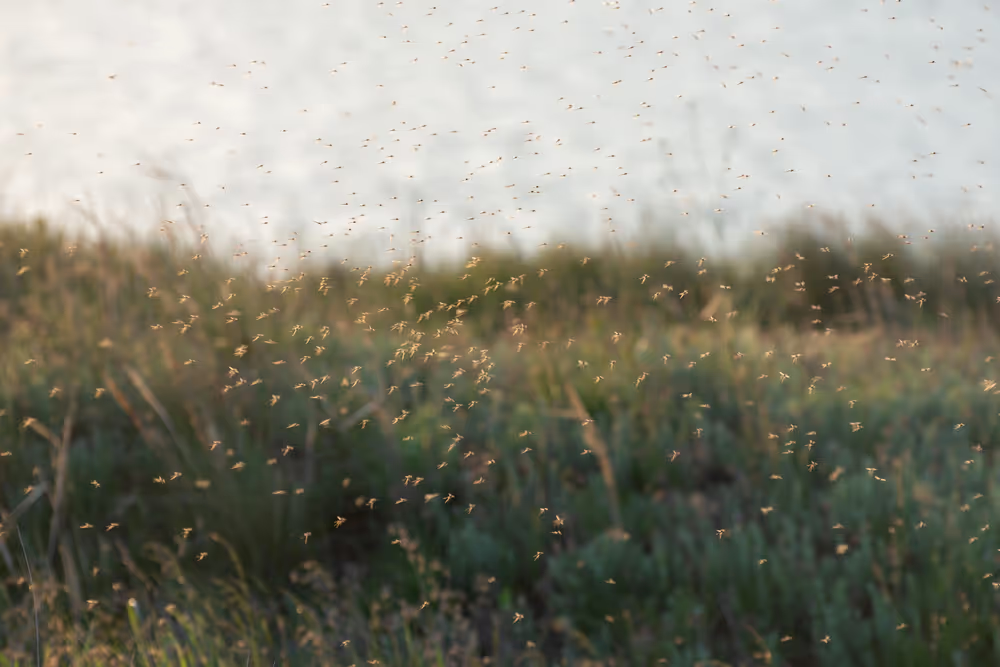Is it a Midge or a Mosquito? Here's The Differences.

With warmer weather in Atlanta, GA comes fun filled days outdoors, plenty of sunshine and family gatherings, and (you guessed it) backyard pests.
If you've been swatting at tiny flying bugs lately and wondering, "Is that a mosquito or a midge?" you’re probably not the only one.
Midges and mosquitoes can be confusing to tell apart, but understanding the difference can save you from itchy bites and an uninvited swarm at your next barbecue. Without properly identifying what you’re up against, you won’t know which steps to take next.
Here's everything you need to know about mosquito and midge identification and control.
What is a Midge?

Midges are small, flying insects that often swarm near water sources, such as lakes and ponds. Unlike mosquitos, not all midges bite.
There are two main types of midges to be aware of:
- Non-biting midges (or chironomids): Harmless, but annoying in large swarms.
- Biting midges (often called "no-see-ums"): Much smaller than mosquitos but capable of delivering a painful, itchy bite.
Midges are particularly active around dusk and are attracted to lights, making your porch or patio their favorite evening hangout.
Mosquito or Midge? How to Tell the Difference
Not sure if you're dealing with a mosquito or a midge? Here's how to spot the difference:
- Size: Mosquitos tend to be larger and lankier, while most midges are smaller, stubbier, and more compact.
- Wings: Mosquitos have narrow wings with visible veins, while midge wings are shorter and less distinct.
- Behavior: Mosquitos are stealthy and will generally land on you to bite. Midges, especially non-biting ones, are more likely to hover in dense swarms near water or lights.
How to Identify and Deal With Midge Bites

If you've been bitten, but didn't see or feel the culprit right away, there's a good chance it was a biting midge.
Midge bites are small, red, and often clustered. They may swell and become itchy soon after the bite.
To treat them, wash the area with soap and water, then apply an anti-itch cream or cold compress. If the itching persists, over-the-counter antihistamines may be able to help.
Mosquito Repellents vs. Midge Repellents

Both mosquitos and midges can ruin your time outdoors, but the right repellent can help keep them at bay.
Mosquito Repellents
The most effective mosquito repellents contain DEET, picaridin, or oil of lemon eucalyptus. Apply them to exposed skin and clothing according to package instructions. Mosquito traps and screens can also reduce their presence in your yard.
Midge Repellents
Biting midges are persistent, and while DEET can help, many people swear by niche solutions like smoke or citronella candles. Protective clothing, like long sleeves and pants, can also help you prevent bites when midges are swarming.
Should You Call a Mosquito Control Service Near You for Midge Swarms?
If you're dealing with large swarms of midges or mosquitoes on your property, it might be time to bring in a professional pest control service. While repellents can certainly help in the short term, professionals use targeted treatments to manage infestations more effectively, helping you prevent problems long into the future.
At Tuxedo Mosquito Control, we specialize in midge and mosquito control services tailored to Atlanta homeowners.
Whether you're hosting a backyard party or just want to enjoy your patio in peace, we can help. We’ll minimize the pests. You focus on the fun.
Schedule your service today!
Did You Know?
A single mosquito can lay up to 300 eggs at a time, often in standing water near your home. Meanwhile, some midge species can be so small they fit through standard window screens! Proper yard maintenance, such as removing standing water and using fine mesh screens, can significantly reduce populations of both midges and mosquitoes.
FAQ
What is the main difference between a mosquito and a midge?
Mosquitos are larger and typically bite to feed on blood, while midges are smaller, and only some species (biting midges) bite.
Do midges carry diseases like mosquitos?
Most biting midges do not spread diseases to humans, though some species may affect livestock. Mosquitos, on the other hand, are known carriers of diseases like West Nile Virus and Zika.
Can midge bites cause allergic reactions?
Yes, midge bites can lead to localized swelling and itching. Severe allergic reactions are rare but possible.
How can I prevent mosquitos and midges around my home?
Eliminate standing water, use insect repellents, and consider professional pest control services for the most effective management strategy.
Is mosquito control effective for midges too?
Yes, many treatments designed for mosquito control also work for midges, especially if they target breeding grounds and resting areas.
Contact Tuxedo Mosquito Control Today
A member of our team will be in touch shortly to confirm your contact details, or address questions you may have.
